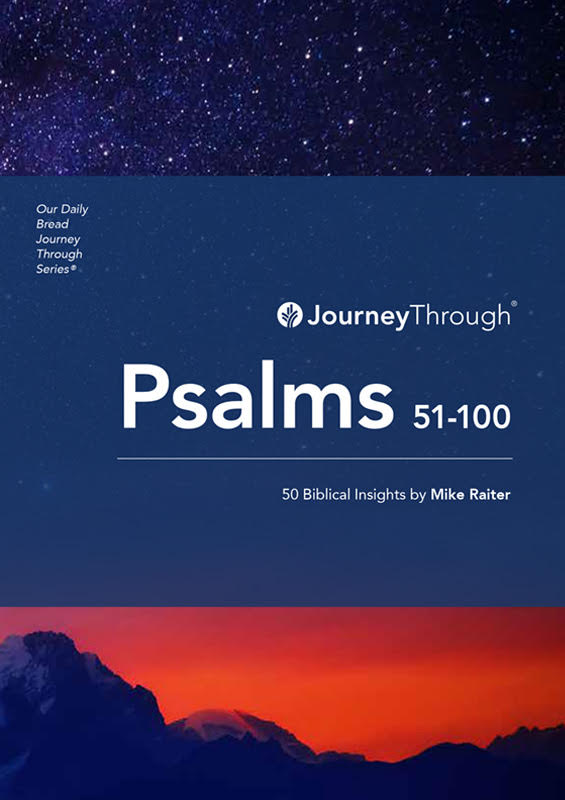
This is the first part of a two-part series. Read Part 2 here.
I love the psalms.
When I was a younger man trying to make sense of life, the book of Psalms gave me much comfort, encouragement, wisdom, and direction. Whenever I felt lost or a little disoriented, the psalms gave me much-needed perspective from God.
As I grew up, got married, and had children, and as my responsibilities and challenges increased in each new season of life, the psalms took on even greater meaning.
A favourite verse of mine would most definitely be Psalm 61:2:
From the ends of the earth I call to you,
I call as my heart grows faint;
lead me to the rock that is higher than I.
The book of Psalms holds a special place in my heart because it provides practical principles for life. As believers, we know the promises of God and the hope we have in Him. However, life is tough, uncertain, and can seem extremely unfair at times. The psalms capture all these feelings and more.
The Psalms can also be a helpful resource for teaching children, as we prepare them to navigate life and all its complexities—with God as their reference point. As Psalm 34:11 exhorts us: “Come, my children, listen to me; I will teach you the fear of the LORD.”
Allow me to share the following takeaways from my own devotional journey through the Psalms:
Journey Through Psalms 51-100
Get our latest resource!
Journey Through Psalms 51-100 is available.Get a copy
Every month, we roll out a new resource for families. Subscribe to our email updates, and be the first to get a copy!
1. The Psalms Teach, Instruct, and Guide Us in God’s Ways
Direct my footsteps according to your word;
let no sin rule over me.
—Psalm 119:133
When it comes to wisdom and instruction, Psalm 119 stands out above all. If Psalm 1 is the starter and Psalm 19 the appetiser, then Psalm 119 must most certainly be the main course.
Written according to the 22 letters of the Hebrew alphabet, this acrostic psalm is packed with the goodness of God’s Word from aleph to tau, or alpha to omega in Greek.
More than just a collection of songs and prayers, the Psalms provide us clear and objective teachings, instructions, and guidance in the ways of Jesus and His kingdom.
Sounds familiar? That’s because Jesus is the Alpha and the Omega, the beginning and the end (Revelation 1:8; 21:6; 22:13). Jesus is the Word that was with God in the beginning, the Word that was God, and is God (John 1:1–2).
Just as Jesus embodies and reveals the Word of God, the Word of God, too, reveals Jesus as the way, the truth, and the life (John 14:6). More than just a collection of songs and prayers, the Psalms provide us clear and objective teachings, instructions, and guidance in the ways of Jesus and His kingdom.
As a father, my desire is for each of my children to learn to love, delight in, and meditate on God’s Word (Psalm 1:2). For instruction to become revelation, I pray Psalm 119:18 for each of them: “Open my eyes that I may see wonderful things in your law.”
2. The Psalms Teach Us How to Worship in Spirit and in Truth
Come, let us bow down in worship,
let us kneel before the LORD our Maker.
—Psalm 95:6
Today, it can be easy to reduce worship to the singing of a few songs. This also raises the question of whether worship music should be sombre and serious, or happy and clappy. Sadly, the “worship wars” of our day may have caused us to miss the point of worship entirely.
Although the psalms are songs, they remind us that true worship goes beyond outward expressions and styles, and begins deep within the inward positions of our hearts.
True worship goes beyond outward expressions and styles, and begins deep within the inward positions of our hearts.
When we read and ponder over the psalms, we can feel the heart of the psalmists. Whether expressing exuberant praise or quiet reflection, these hearts yearn for and reach out to touch the heart of God. That’s true worship—in spirit and in truth.
As parents, we can make special effort to demonstrate that worship happens not only during church service, but also at home—not just in Sunday school, but through the mundane routines of life, including homework or housework. Living in worship means doing everything for God’s glory, and with Him in mind.
3. The Psalms Give Us Permission to Be Honest and Real before God
My eyes are dim with grief. I call to you, LORD,
every day; I spread out my hands to you.
—Psalm 88:9
Before God, we can be who we really are. No need for pretences, religious facades, or Christian-ese. After all, God knows exactly how we are feeling and what we are going through. We can pour out everything to Him in honesty and humility, and we can find hope and healing.
In striving to teach our children to love our enemies and live righteously, we can assure them that we can also be totally authentic when the pain or injustice we face gets too much to bear.
I deeply appreciate the psalms because they are real and raw. In the imprecatory psalms, or those that invoke judgment or curses upon one’s enemies, for example, the psalmists are not afraid to describe their circumstances clearly, and even express their pain and frustration openly.
What is especially noteworthy is that the psalmists never take things into their own hands, but direct everything to the Lord. It is an honest cry against injustice, and the expression of belief in a just God who allows that.
In discerning these psalms, we are assured that the God who loves radically is also One who judges righteously. He alone knows how to do both perfectly. In striving to teach our children to love our enemies and live righteously, we can assure them that we can also be totally authentic when the pain or injustice we face gets too much to bear.
4. The Psalms Prepare Us for Troubles—and Seek Help from the Lord
I pour out before him my complaint;
before him I tell my trouble.
—Psalm 142:2
In the New King James Version of the Bible, the word “trouble” appears at least 60 times in the Psalms. It’s an accurate reflection of life, which we know is not always a smooth one.
After all, Jesus did say that we will face troubles in this world (John 16:33). Yet, in the same breath, He promises us peace that we may bear life’s challenges in and through Him. In a similar vein, we will not be liked or loved by all. Just as the world hated and rejected Jesus, we too will be hated and rejected as His followers (John 15:18–21).
We can help our children to be prepared for life’s challenges and to face difficult people, by learning from the psalms and seeking the Lord.
As believers of Christ we can expect opposition from others. However, we have the promise that God himself will fight for us, to save and deliver us.
For example, King David refused to solve the troubles he encountered his way, but constantly asked God to show, teach, and lead—not just any way, but “Your ways”, “Your paths” and “Your truth” (Psalm 25:4–5).
And while he had many enemies—who hated him not because he was a bad person, but because he was determined to live righteously according to God’s ways—David confidently declared, “I know that you are pleased with me, for my enemy does not triumph over me. Because of my integrity you uphold me and set me in your presence forever” (Psalm 41:11–12).
In the same way, as believers of Christ we can expect opposition from others. However, we have the promise that God himself will fight for us, to save and deliver us. As Psalm 18:17 says: “He rescued me from my powerful enemy, from my foes, who were too strong for me.”
The psalms may be filled with many trials and tribulations, but they are also filled with many assurances that “the LORD delivers him from them all” (Psalm 34:19).
Read Part 2 of this two-part series on reflecting on the Psalms here.




